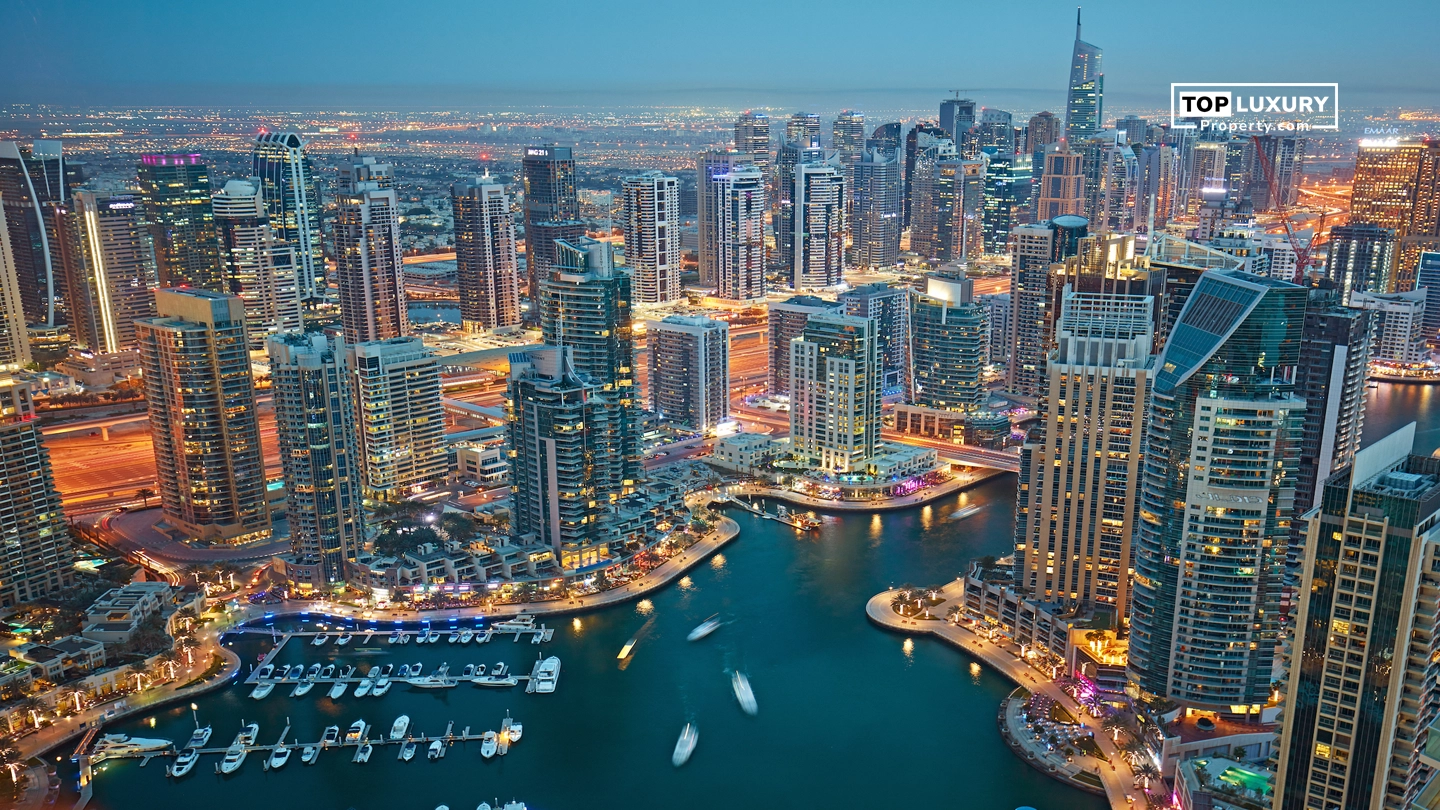As a leading real estate agency, Top Luxury Property, we frequently get asked the big question: “Is the Dubai real estate market on the verge of collapse?” It’s a valid concern, given the rapid price surges, but the situation is more complex than it appears. By exploring expert opinions and analyzing market trends, we aim to provide you with a comprehensive outlook on whether Dubai’s real estate sector is headed for a bubble or a sustainable future.
The Current Landscape: Is Dubai in a Bubble?
The term Real Estate Bubble has been circulating widely, particularly with Dubai’s property prices surging by over 20% in 2023. However, experts argue that while the market is “hot,” it isn’t heading towards a speculative bubble akin to the 2008 crisis.
A key difference now is the market’s strong foundations. Dubai’s real estate market in 2024 is shaped by a regulatory framework designed to prevent unsustainable growth. Stricter mortgage lending rules, property flipping taxes, and requirements for project funding transparency have curtailed reckless speculation. These measures have not only stabilized the market but also protected it from the excessive credit-driven growth that characterized the 2008 crash.
Moreover, Dubai remains more affordable per square meter compared to cities like Hong Kong, Zurich, and Tokyo, despite the price growth. According to Knight Frank’s analysis, you can get 105 SQM area under $1m. This affordability, combined with tax incentives and high rental yields, continues to attract global investors, contributing to sustained demand.
Key Data from 2024: Why a Crash Is Unlikely
Population Growth and Housing Demand
One of the biggest factors supporting Dubai’s real estate market is the city’s growing population. As of 2024, Dubai is home to over 3.6 million people, with projections indicating a rise to 5.8 million by 2040. This influx of residents, largely due to Dubai’s position as a global hub for expatriates, has significantly increased demand for housing, especially in the luxury and high-end segments.
In 2023 alone, luxury property transactions above $10 million surged by 92%, with Palm Jumeirah , Jumeirah Bay Island , and Emirates Hills leading the charge. For investors eyeing long-term gains, this demand translates into continued growth in property values and rental income. The influx of high-net-worth individuals seeking prime real estate ensures that the luxury market remains robust.
Supply vs. Demand
Another concern often raised is oversupply. Dubai is expected to add around 40,000 new housing units in 2024. While this may raise fears of a potential glut, experts argue that demand continues to keep pace with supply due to population growth and Dubai’s appeal as a safe haven for investment. Developers have also adjusted timelines to avoid flooding the market, ensuring that new projects align with market demand, which mitigates the risk of a significant downturn.
Luxury Real Estate: The Investor’s Safe Bet
At Top Luxury Property, we have witnessed firsthand the continued resilience of Dubai’s luxury real estate market. For example, the luxury rental market has performed exceptionally well, with villa rental prices rising by up to 27% in some areas. This makes luxury properties a reliable source of high rental yields for investors. In the first half of 2024, luxury villas saw rental yields as high as 8%, significantly higher than global benchmarks.
Additionally, the UAE’s pro-investment policies, such as the introduction of long-term visas for property buyers, continue to attract international investors, further boosting demand in the luxury segment. Dubai’s reputation as a safe investment destination during periods of global uncertainty makes it a magnet for high-net-worth individuals.
Expert Opinions: What’s Next?
Maurice Gravier, Chief Investment Officer at Emirates NBD, acknowledges that the Dubai market might be experiencing a short-term “overheating” but is confident that the long-term prospects remain robust The city’s focus on diversifying its economy beyond oil—into finance, technology, and tourism—provides strong economic support for the real estate market.
On the other side Owen said It is unlikely that there will be a major slow down anytime soon because the UAE government’s open door policy for foreign investors has helped them tide through the tough and tumultuous times post-pandemic,”
Experts from Barclays Private Bank echo similar sentiments, noting that while short-term corrections may happen, there is no indication of a major crash on the horizon. This is largely due to the strong regulatory environment, which contrasts sharply with the speculative, credit-fueled growth that led to the 2008 crisis.
According to Kroll’s Abdeljaouad, financial institutions and major developers in the region have adapted and are now better equipped to handle market fluctuations, learning valuable lessons from previous crises. “The market focus is shifting more towards mainstream housing and infrastructure.”*
Dubai’s economy is also showing signs of strength. S\&P Global’s December purchasing manager index hit its highest point in 16 months, reflecting robust expansion in Dubai’s non-oil sectors.
Additionally, Faisal Durrani from Knight Frank notes that Dubai is expected to deliver only 13,000 new homes annually over the next six years, significantly lower than the 30,000-unit average over the last 15 years. This lower supply could lead to a housing shortfall, which may help sustain demand in the coming years.
Economic Diversification and Market Resilience
Another vital factor preventing a market collapse is Dubai’s diversified economy. Unlike in 2008, when the market was highly dependent on speculative buying, today’s growth is driven by foreign investment and a booming economy. In 2024, real estate will contribute around 9% to Dubai’s GDP, supported by thriving sectors such as technology, trade, and tourism.
Government initiatives such as the Dubai 2040 Urban Master Plan, which focuses on sustainable development and high-quality infrastructure projects, further enhance the city’s appeal as a global business hub. This consistent flow of foreign direct investment and the growing expatriate community are key drivers of long-term stability in the real estate market.
Signs of a Slowdown?
Despite the optimism, it’s crucial to acknowledge the signs of a potential slowdown. According to Reuters, the market’s growth rate is beginning to cool, particularly in the middle-tier residential market . Some areas are showing slower sales and a decrease in rental yields. However, this isn’t necessarily a cause for panic; it could indicate the market is simply balancing out after a period of rapid expansion.
The Bottom Line: A Future of Steady Growth
So, is Dubai’s real estate market destined for collapse? The data and expert insights suggest otherwise. While prices have risen quickly, and the market might cool slightly, Dubai is well-positioned to avoid a catastrophic downturn. Government regulations, rising demand, and economic diversification provide strong support for continued growth in the real estate sector.
As an investor or homebuyer, this means that Dubai remains an attractive and stable market, particularly in the luxury segment. At Top Luxury Property, we believe that with the right strategy, you can continue to reap significant rewards from Dubai’s dynamic real estate landscape. Whether you are looking for high rental yields, long-term appreciation, or a prime luxury home, Dubai offers a unique investment opportunity unlike any other global city.
If you’re ready to explore investment opportunities in Dubai’s thriving market, reach out to Top Luxury Property today. Let us help you make the most of this resilient market.






